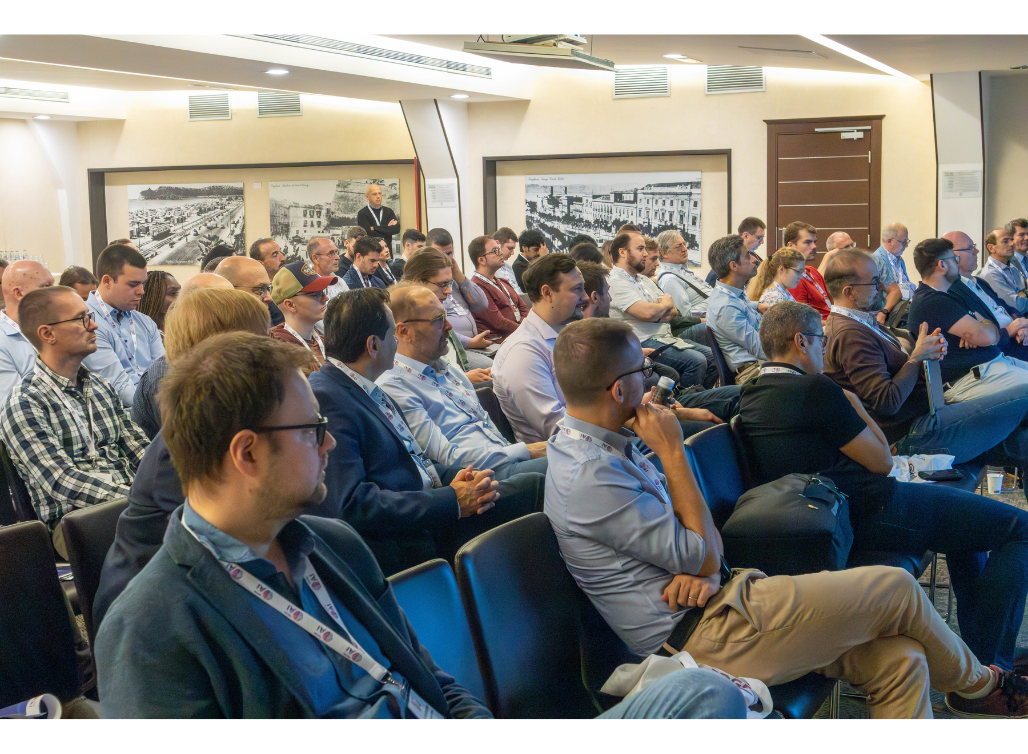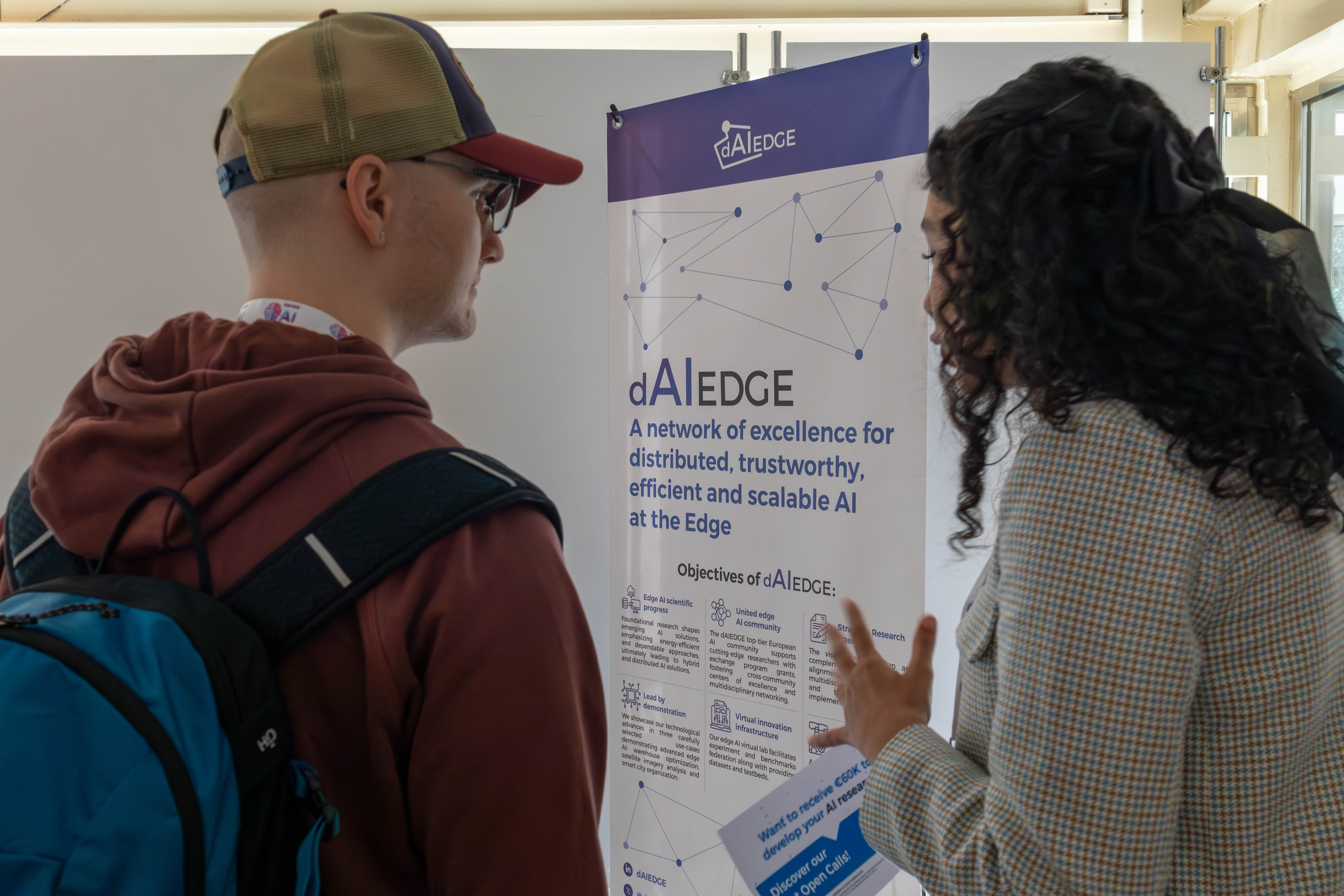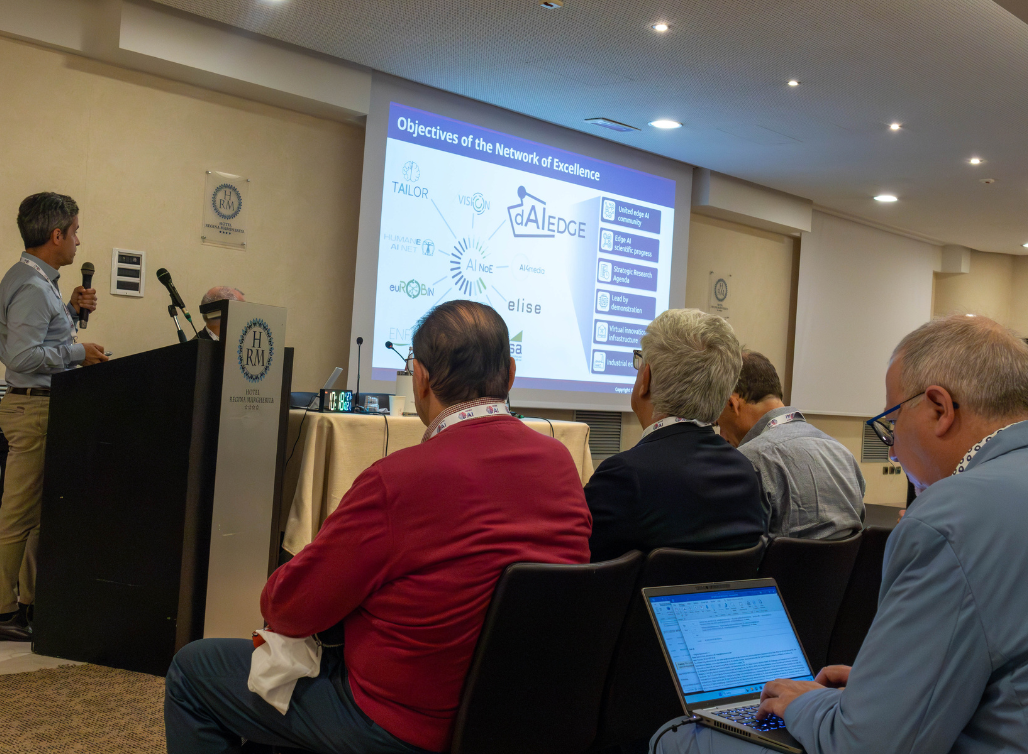Technological advancement in Edge AI was the focus of the European Conference on EDGE AI Technologies and Applications (EEAI 2024), co-organised by dAIEDGE and held in Cagliari, Italy, from 21-23 October 2024. This event became a key meeting point for academic leaders, researchers and industry professionals who explored the latest developments and innovations that are transforming key sectors such as sustainability, energy, security and hardware design.

Over the three days, more than 50 presenters took part in 12 keynotes and parallel sessions, addressing more than 20 topics, where participants discussed how Edge AI is redefining the future of technological applications and systems, not only in functional terms, but also in terms of the non-functional challenges. Among the central themes were the acceleration of artificial intelligence through specialised hardware, the efficient management of resources and the need to establish reliable and ethical systems in critical applications.
In EEAI, dAIEDGE presented its project showing the transformative advances that Edge AI is already bringing to various industries and sharing the first Open Calls of the project. This call, aimed at researchers and companies interested in proposing innovative Edge AI solutions, aroused great interest among attendees, who were able to explore the opportunities for collaboration and the benefits of joining the dAIEDGE ecosystem with only ten days to go before it closed. In addition, dAIEDGE partners enriched the EEAI 2024 programe with presentations that offered a practical and innovative view of Edge AI in action, highlighting its transformative potential in sectors such as sustainability, energy and security.

- Keynote Presentations
- FPGA Acceleration for SAR Imagery-Based Sea Ice Mapping: This presentation, by Rashed Al Koutayni from DFKI (Germany), addressed the use of FPGA accelerators to improve the speed and accuracy of sea ice mapping using synthetic aperture radar (SAR) imagery.
- Enhancing Sustainability in Water Resource Management: Manal Jammal (AIR Institute, Spain) and Laura Sanz-Martín (University of Salamanca, Spain) presented Edge AI solutions to optimise water resource management, promoting sustainability in one of the sectors most affected by climate change.
- Online AI Benchmarking on Remote Board Farms: In this session, Maïck Huguenin from the University of Applied Sciences of Western Switzerland explored new strategies for benchmarking AI systems in remote environments, leveraging the capabilities of Edge AI.
- Accelerating AI at the Edge: The Power of Efficient Hardware-Software Co-Design: José Cano from the University of Glasgow explained how efficient hardware-software co-design can significantly accelerate AI applications at the edge, improving efficiency and reducing energy costs.

- Functional and Non-Functional Requirements in Edge AI Systems: Ovidiu Vermesan (SINTEF, Norway) and Alain Pagani (DFKI, Germany) discussed the challenges associated with functional and non-functional requirements in Edge AI systems, addressing both operational needs and ethical and legal constraints.
- The Accountability Strikes Back: Decentralizing the Key Generation in CL-PKC with Traceable Ring Signatures: Explained by Varesh Mishra (COSIC, KU Leuven), which addressed issues of decentralisation and security in key generation.
- Legal Requirements for Trustworthy Edge AI: Lydia Belkadi from KU Leuven addressed the regulations needed to ensure trustworthy edge AI solutions.
- Trustworthy Edge AI Solutions in Autonomous Vehicle Perception and Sensor Fusion: Also by Ovidiu Vermesan from SINTEF, this presentation highlighted Edge AI applications in perception and sensor fusion for autonomous vehicles, a critical area for the security of transportation technologies.
- Edge AI Applications in the Energy Industry: Ovidiu also presented how Edge AI is optimising energy management, enabling more efficient and sustainable use of energy resources.
The event allowed participants not only to learn from leading experts, but also to network and connect with the best in the industry, strengthening a community of experts and practitioners who are driving innovation in Edge AI.